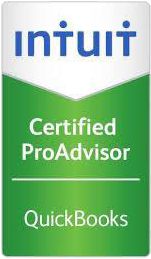Accounting Service : As a business owner in New Jersey, you know how hard it is to start your brand. What’s even harder is to prevent it from falling. What’s more? 75-80% of start-ups in the States fail within the first year of their inauguration. This is not a joke; due to several factors, many start-ups and brands just fail to make an impact.
One such reason is the lack of proper financial management. You see many times; new entrepreneurs do not take the initiative to hire a business startup services New Jersey. Rather, they take it upon themselves to handle the finances of their company and this isn’t always such a smart idea.
Now, we aren’t saying that brand owners aren’t capable of monitoring and handling finances. However, most of these people are new to managing businesses. Therefore, these entrepreneurs should focus on their business growth and leave the finance handling part to trusted accountants.
A good accountant has years of experience, work ethics and insight on the right way to handle and monitor finances. As a result, these accountants can prevent a company from spending excess money and channel it towards profitable growth. Want to know other ways in which an accounting firm can help you out.
Let us tell you! We are Thomas Ross Financial Group, one of the best business startup services New Jersey that provide accounting and business valuation services.
Today, we are here to highlight a few reasons why hiring accounting services can benefit a brand in many ways.
1. Taking the Burden off
Hiring reputed accounting services will mean entrepreneurs have to pay extra money to accountants. This is one of the prime reasons why businesses do not hire entrepreneurs. However, when the CEO’s take the burden of financial management on their plate, they fail to fully focus on their business.
Therefore, even if the cost of hiring an accountant might seem big, it is better entrepreneurs do so. These accountants are experienced and smart; as a result, when it comes to saving money, these accountants can help the entrepreneur in an invaluable way.
2. Perfect Future Planning
One of the best reasons to invest in an accounting service is that your accountant will help you with optimal future planning.
As your accountant collects data and makes financial reports, you can go over these with him/her. These statements and reports will help you plan your future finances optimally and steer your company towards profitable growth.
3. Get Tax Deductions Timely
Entrepreneurs are on their guard on tax-season. Most are trying their best to save up money during tax deductions. However, most end up waiting till the end of the year to save up, and this is where they mess.
Often when they wait till the end, the opportunity to save up money is gone. However, if these entrepreneurs hire trusted accounting services New Jersey they can solve this issue. Experienced accountants monitor finances all year long. As a result, they know exactly where to hit to save finances.
The reason being these accountants keep track of excessive expenses and depreciation that help them understand a company’s finances. Therefore, based on collected data these accountants help in availing tax deductions timely.
4. Prevent Succumbing to Fraud
One of the biggest threats faced by brands is becoming a victim of fraud. Many times when a brand owner is busy monitoring other aspects of business there can be unscrupulous people at work who secretly deplete the company finances.
This is something an accountant can prevent. How? Well, your accountant is continually monitoring your finances all year long. Therefore, if he witnesses any suspicious activities, he will instantly report it to you. After that, your accountant will make sure to take the steps necessary to protect your finances from unethical frauds.
5. Quick Decision Making
Often business entrepreneurs face a predicament that involves decision making. There are so many choices to pick from and taking a wrong decision means hampering the company finances. This is why entrepreneurs should opt for hiring accounting services New Jersey.
Skilled accountants are very good at giving financial advice to clients. The reason being they monitor the company finances all year long. So, they know exactly how much a company can profit and what are its shortcomings.
Therefore, the advice given by accountants is invaluable. Firstly, they will save you money, and secondly, these accountants will prevent you from investing too much in unnecessary things.
On that note, now that you’re aware of the many perks of hiring reputed accounting services, why don’t you consult us at Thomas Ross Financial Group? We have some of the best accountants in New Jersey who can help your brand reach new heights. We also offer business start-up services and more. So, hurry! Contact us today and let us protect your finances the smart way.




